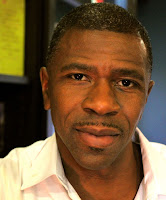By Sam Piha
 |
| Source: cnn.com |
When there are disturbing events that fill the airwaves, it is important that caregivers have resources to guide them on how to talk to young people about these events, and how to turn to self- care. Below are some resources that caregivers, including teachers, afterschool workers and parents, may find helpful.
COVID-19
Brooke Anderson is a Bay Area organizer and photojournalist. In the interest of self-care, she developed 6 Daily Quarantine Questions, which she expands on in detail in her article from Greater Good Magazine.
 |
| Source: Greater Good Magazine |
 |
| Source: samanthasbell.com |
Temescal Associates and The How Kids Learn Foundation launched the My Pal, Luke project. My Pal, Luke features a virtual, talking comfort dog who promotes social emotional learning through his words and questions, including a “feelings” check-in with young children. Luke reads his favorite books with kids and educates them on how to make sense of current events.
I am a clinical child psychologist and I've watched how Covid-19 has presented so many challenges for children and their parents. What children never forget how to do is play, even in the toughest of circumstances. And My Pal, Luke helps them do exactly that, with the added benefit of soothing and educating our children who are now pandemic on-line learners. What a great gift to all of us." - Dr. Diane Ehrensaft, Ph.D., Developmental and Clinical PsychologistINSURRECTION IN THE CAPITOL
 |
| Source: theconversation.com |
- Dr. Alyssa Hadley-Dunn, associate professor of Teacher Education at Michigan State University and founder of Teaching on the Days After: Dialogue & Resources for Educating Toward Justice offers resources to help educators teach about the attack on the U.S. Capitol on Jan. 6.
- The American Historical Association has launched "The Assault on the Capitol in Historical Perspective: Resources for Educators." The site offers historical knowledge to help understand the current crisis.
- Teachers on Twitter at #sschat are sharing lessons about the lessons they are teaching on the attack. Teacher Brianna Davis from Camarillo offers this lesson. Sam Mandeville of New Hampshire is sharing this @PearDeck lesson.
- PBS NewsHour Extra is offering three ways to teach the insurrection at the U.S. Capitol.
- The American Federation of Teachers' Share My Lesson website has been updated with information to help teachers facilitate meaningful discussions about the attack on the Capitol with their students.
- Larry Ferlazzo, a Sacramento City Unified teacher with a popular blog on teaching, has posted "Ways to teach about today's insurrection."
Below are resources provided by the California Afterschool Network (CAN):
- Facing History: Responding to the Insurrection at the U.S. Capitol (1/6/21)
- Teaching Tolerance: Leading Conversations After the Insurrection in Washington D.C. (1/7/21)
- Education Week: Caring for Students in the Wake of a Traumatic News Event (1/7/21)
- Awaken: How to Manage Your Team in Times of Political Trauma
- Zinn Ed Project: Teaching People’s History Resources
RACIAL JUSTICE
The 4-H Organization writes, “Being able to help young people understand topics such as racism, implicit biases, and discrimination requires facilitating difficult conversations and providing youth with information that will help them to learn and grow… Both adults and youth must challenge themselves to learn and grow through these conversations to be better prepared for a more culturally, racially, and ethnically diverse world.”To this end, 4-H’s Program Leaders Working Group developed Just in Time Equity Dialogues for Youth: Lessons Designed to Foster Honest Conversations with Youth About Social Justice Issues. They also published Supplemental Resources which offers resources, readings and other relevant content to support guide use.
MEDIA LITERACY
It is important to note that there continues to be a proliferation of partisan news sources peddling deeply skewed or even inaccurate information that has helped fuel conspiracy theories and other harmful perceptions of the integrity of U.S. elections. Below is a resource to help educators prepare their youth for deciphering fake news:














